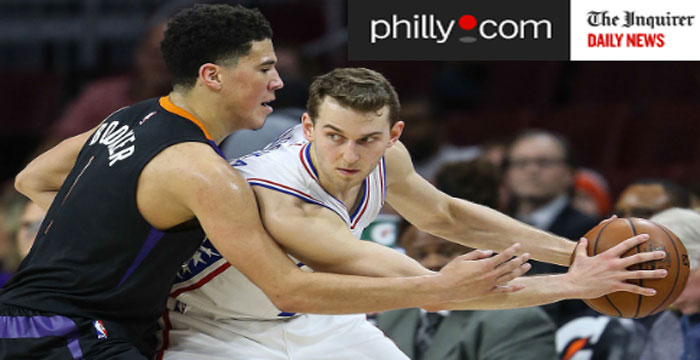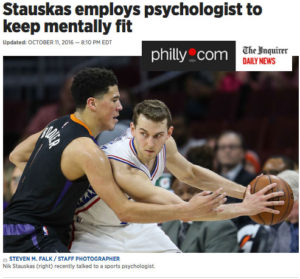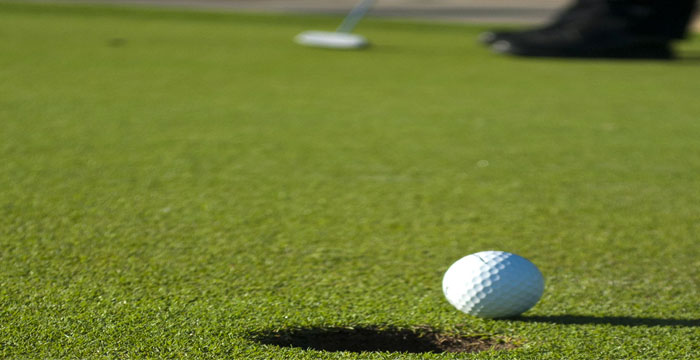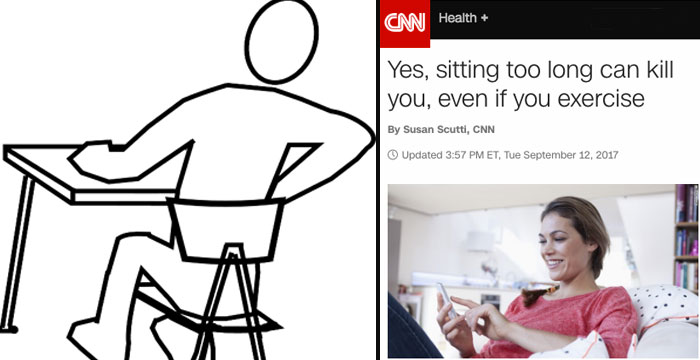My commentary– This article is a great example of how athletes employ a sport psychologist to work on specific psychological skills. Nik presents with a history of fleeting self-confidence and self-doubt. Nik was looking for a way to decrease negative self-talk and increase concentration/focus. What he learned is that “attitude is a choice”. He also embraced the ideal of being “mentally in-shape” to facilitate better performance. Furthermore, it appears that Nik has learned to decrease his worry and overemphasis on what other people think. Ultimately, when we play our best, we learn how to focus on the task at hand, and “turn down the volume” on all irrelevant stimuli.
I have highlighted the text that illustrates my assertions. Hopefully you will be able to see that these are common problems that occur across all levels of play. Enjoy!!
MEMPHIS – Nik Stauskas doesn’t have trouble driving the lane or pulling up for a three-pointer.
He does, however, have problems with criticism and self-doubt. (Presenting problem)
So the 76ers’ reserve shooting guard – for the second time in the last several years – employed a sports psychologist a couple of weeks ago.
“I feel like it’s just as important” as working on his on-court skills, said Stauskas, who has been sidelined since Oct. 4 with a strained left hamstring. “Keeping your mind sharp, I feel that’s something that I enjoy doing and something I feel like will help me down the road.”
The third-year veteran, who expects to return to the court Thursday night against Washington at the Verizon Center, said he has endured bouts of wavering confidence throughout his basketball career. That’s something Stauskas wants to end, so he’s working on ways to control what goes on in his mind.
(Negative Self- Talk)–“Every player out there is going to have some negative thoughts going through their mind,” Stauskas said. “But it’s just being able to choose which thoughts you want to focus on more. And if you don’t have discipline to choose which thoughts you can focus on, then sometimes it’s going to mess you up a little bit.”
The 23-year-old Canadian also had a sports psychologist heading into his sophomore year at Michigan. Back then, life was good for Stauskas, a freshman starter for the Michigan squad that advanced to the 2013 Final Four. But he wanted a mental edge. So he linked up with a sports psychologist, and he said he benefited greatly.
After his confidence skyrocketed, Stauskas was the Big Ten player of the year as a sophomore. Following that season, Sacramento selected him eighth overall in the 2014 NBA draft.
When he was acquired by the Sixers in a trade from the Kings in July 2015, Stauskas was hyped by many as a sharpshooter who would help spread the floor for post players.
Instead, he went on to average 8.4 points and connected on only 32.6 percent of his three-pointers. He had eight games in which he failed to score a point.
His struggles continued during his brief action this preseason. Stauskas finished with no points on 0-for-4 shooting in 18 minutes before straining his hamstring against the Celtics on Oct. 4.
After initially being welcomed by fans and other Sixers observers in Philadelphia, Stauskas has been receiving criticism for failing to live up to those lofty expectations others had set for him. He has discovered, he said, that few places in Philadelphia are criticism-free.
He even recalled being picked by an Uber driver last month. Stauskas was asked about his preference of a radio station. After saying he had none, the driver turned to a local sports-talk radio show.
They heard a caller say to the host, “Why is Nik Stauskas in the NBA? Why do we still have him on this team? This dude is so horrible.”
Then the radio host went on for another minute about how Stauskas doesn’t belong with the Sixers. Stauskas just sat there and listened, not sure if the driver was aware that he was who they were talking about.
(Increase Focus and Attention) “One of the things that messed me up was just focusing on what other people think,” Stauskas said. “Whether that’s what the coaches are thinking, what the fans are thinking, or the media, if you get caught up in that, I think that can mess you up. . . . That played a part in my confidence wavering.”
So far, Stauskas has been seeing his Philadelphia-based psychologist once or twice a week since September, and he is trying to have fun on the court, focus on winning games, and shut out any criticism.
“I don’t really consider [the person] a psychologist,” Stauskas said. “It’s more like staying mentally in shape. Do people think it’s insane to go to the gym and work on your body? No, it’s expected.
“I feel like the mind is just as important as the body.”





